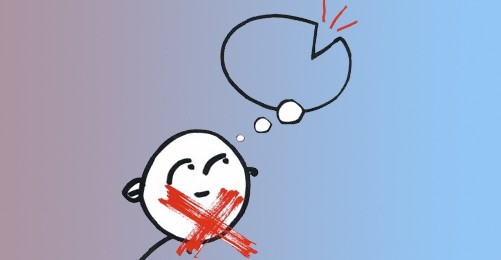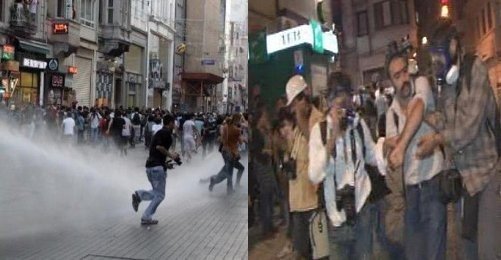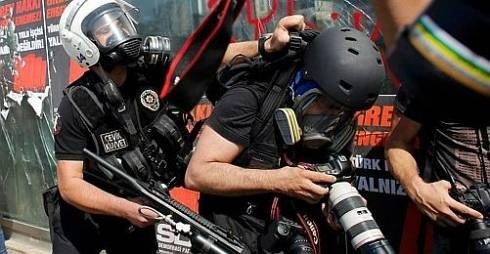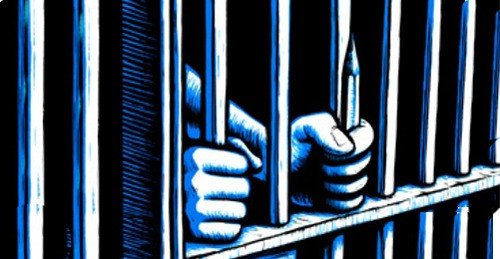
Only 12 journalists were released as a result of the Third Judicial Reform Package, which introduces a conditional pardon for certain media and opinion offences. The journalists took the streets again during this period to demand the release of their imprisoned colleagues and went to courts asking for a fair trial.
A total of 15 journalists were laid off for questionable reasons. This proves that there is an increase in self-censorship.
A total of 72 journalists and 35 distributors welcomed the month of September in prison. Fifty-one out of the 72 journalists and all 35 distributors were from the Kurdish media. In the three-month period, three people, including one journalist and one distributor, were sentenced to a total of 20 years, seven months and 15 days in prison for violating the Anti-Terror Law (TMK).
Twenty people, nine of whom are journalists, face a total of 371 years and 3 months in prison. In October 2011, 66 journalists were in prison. The courts had handed out prison sentences of a total of 44 years and 8 months and demanded prison sentences of a total of 223 years.
The imprisoned journalists and distributors were accused of "following news," "writing books," "criticizing the government," and "working for the Kurdish media" during trials and questionings. In summary, they were being accused, because ordinary journalism activities were considered as activities "creating a media for the illegal organization."
The accusations are based on allegations of "committing an offense on behalf of the group without being a member of that group," "knowingly and willingly assisting a group although not being in the hierarchical structure of the group," "setting up, motivating and directing, and being a member of an armed or an unarmed group."
Only Aram Publishing's owner and Hawar newspaper's executive Bedri Adanır is being tried in a suit brought directly because of news reports.
The Independent Communications Network (BIA) Media Monitoring and Freedom of Expression 2012 July-August-September Report is made up of the following topics: "Journalist murders/trials," "Imprisoned journalists," "Distributors-employees," "Releases", "Attacks, threats and obstructions", "Inquiries, new/on going trials and decisions," "Trials against Kurdish politicians," "Articles 285, 288 of the TCK," "Actions for libel, personal rights and compensation," "Decisions by the Prime Ministerial Board for the Protection of Children from Harmful Publications," "Bans, suspensions, confiscations," "Applications to the ECHR and ECHR decisions" and "Warnings by the Radio and Television Higher Board."
The report gives information about the number of journalists in prison, the long detention periods, investigations and trials that fall within the scope of freedom of expression, and trials opened for violating especially article 7/2 of the Anti-Terror Law (TMK) and articles 215, 220, 285, 288, 314 of the Turkish Penal Code (TCK), which all limit the freedom of expression and press freedom.
In the trials, article 7/2 of the TMK is usually accompanied with article 220/7 (assisting a group without being a member of that group) and article 314/2 of TCK (membership in an armed terrorist organization).
Summary of proceedings for BDP deputies
Summary of proceedings for the deputies of the Peace and Democracy Party: During this period, a total of 75 summary of proceedings were prepared by various Offices of the Attorney General about 24 of the 29 BDP deputies. Nursel Aydoğan, who has seven summary of proceedings, is the deputy with the highest number of summary of proceedings.
Actions for Libel
During the three-month period, the libel cases brought against 28 people, including 20 journalists, continued. Six people, including three journalists were sentenced to a total of 5 years, 5 months and 4 days in prison and were handed a total fine of 26 thousand Turkish Lira for accusations of "libel," "attack against personal rights" and in compensation cases. During the same period last year, one journalist was handed a fine of 7,500 Turkish Lira for 'libel' and he was forbidden from engaging in journalism activities for 375 days.
Bans, Suspensions, Confiscations
In the third quarter, two newspapers and two magazines were seized, two films, one song, one painting and one contestant were censored on television channels, and the screening of a film was banned. The film, 'Innocence of Muslims' was banned on the Internet. The trial regarding the confiscation of the book 'Nurjuvazi' continued.
Seven newspapers could not get permission to follow the Justice and Development Party's (AKP) Congress. During the period, the Ministry of National Education blocked access to the website of the Education and Science Workers Union (Eğitim-Sen).
The photographs of a photographer were found to be harmful. Access of prisoners to two newspapers, three magazines, one book and one television channel was prevented. One prisoner was forbidden from communicating with the outside world. Halil Savda's March for Peace was thwarted on 28 September at the entrance of Osmaniye.
Applications to and Decisions of ECHR
During the third quarter of 2012, the European Court of Human Rights (ECHR) ruled that Turkey should pay a total of 17 thousand 911 euros (42,037 Turkish Liras) for violating Article 9 of the European Convention on Human Rights, which pertains to 'the freedom of thought, conscience and religion,' and Article 10, which pertains to 'freedom of expression,' in the cases of conscientious objector Mehmet Tarhan and of Eğitim-Sen.
Radio and Television Higher Board
The Radio and Television Higher Board handed out 18 warnings and 34 monetary fines to television channels during July-September 2012. It suspended the broadcasts of GÜN TV (Day TV) for on grounds of 'praising terrorism.' The board handed out 47 warnings and five monetary fines to radios. (The Board announced the decisions taken as of 19 September. Therefore the report consists of decisions taken until that date.) (EG/BA/EA)











